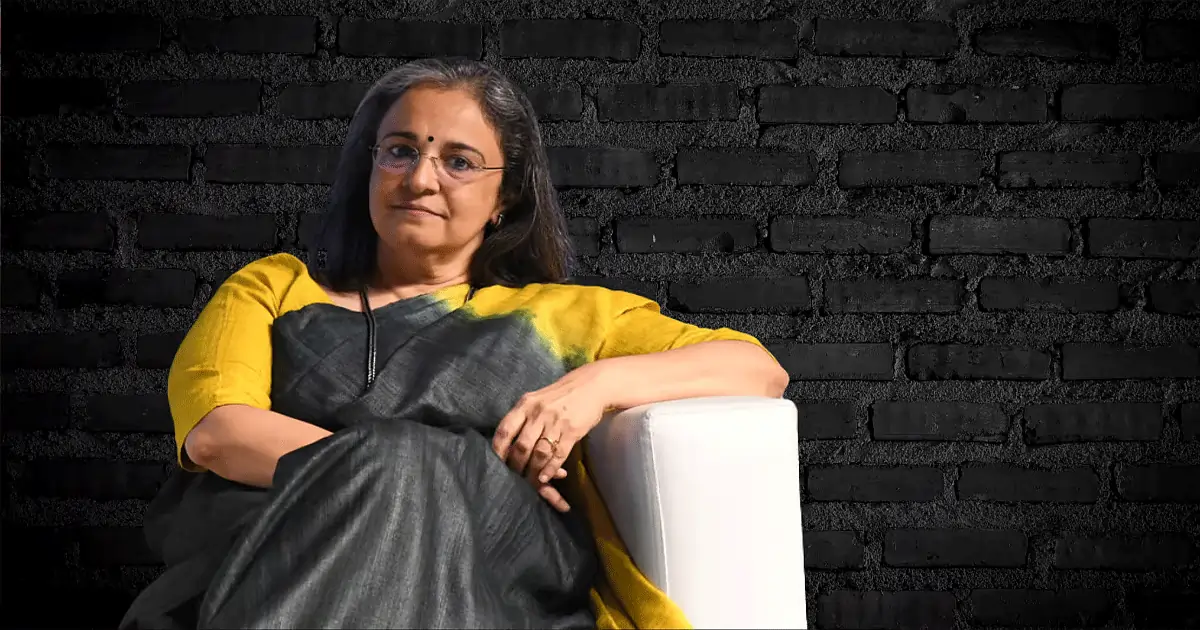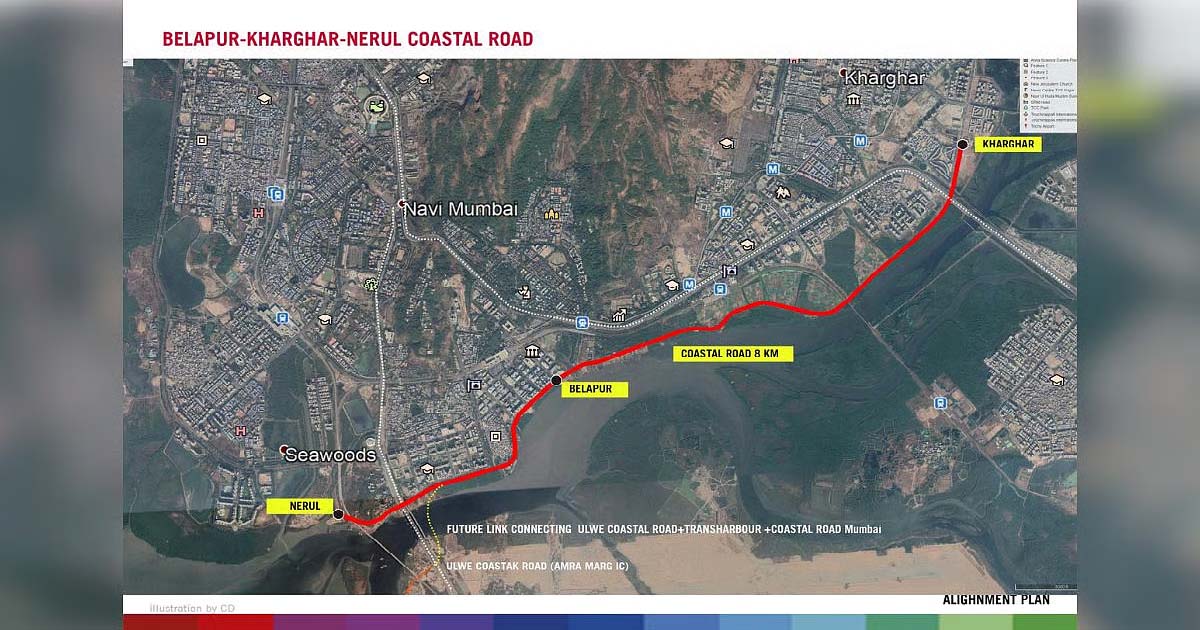Business
Bombay HC Stays ACB Action Against Former SEBI Chief Madhabi Puri Buch, Other Officials In Alleged Corruption Case

Mumbai: In a relief to former Securities and Exchange Board of India (SEBI) Chairperson Madhabi Puri Buch and others, the Bombay High Court on Monday directed the Anti-Corruption Bureau (ACB) not to act on the order of the special court.
Justice S.G. Dige granted relief to Buch, three current Whole Time Members of SEBI, and two officials of the BSE while hearing an appeal by them challenging the order of the special ACB court directing the agency to register a case against them in a listing fraud case.
The matter is likely to be heard on Tuesday.
Solicitor General Tushar Mehta appeared for the SEBI officials implicated in the case, while Senior Advocate Amit Desai represented the two BSE officials allegedly involved.
About The Case
The case pertains to allegations of financial fraud and regulatory violations concerning the listing of a company on the Bombay Stock Exchange in 1994.
On March 1, Special Judge Shashikant Eknathrao Bangar directed the ACB to register an FIR against Buch, the current Whole Time Members of SEBI—Ashwani Bhatia, Ananth Narayan G, and Kamlesh Chandra Varshney—and two officials from the BSE—Pramod Agarwal and Sundararaman Ramamurthy. The court also called for a status report on the probe within 30 days.
The order was passed on an application by Sapan Shrivastava, a reporter from Dombivli, who alleged irregularities in granting listing permission to a company on the BSE in 1994 without complying with the provisions of the SEBI Act, 1992, the SEBI (ICDR) Regulations, 2018, and the SEBI (LODR) Regulations, 2015.
It was alleged that SEBI officials, including Buch and several Whole Time Members, failed to exercise their regulatory duties, allowing the company to list despite not meeting the necessary compliance norms. The complainant also claimed that the accused engaged in market manipulation, insider trading, and artificial inflation of share prices, thereby defrauding investors and violating the Prevention of Corruption Act.
The complaint further stated that despite multiple complaints to both SEBI and the police, no action was taken.
The special court noted that the allegations in the complaint prima facie disclosed a cognizable offense and required further investigation, considering the inaction by law enforcement agencies and SEBI.
SEBI had issued a statement asserting that it would initiate appropriate legal steps to challenge the special court’s order and remains committed to ensuring due regulatory compliance in all matters.
“Even though these officials were not holding their respective positions at the relevant point in time, the court allowed the application without issuing any notice or granting any opportunity to SEBI to place the facts on record,” SEBI stated.
Business
Navi Mumbai: CIDCO’s 9.6-Km Kharghar Coastal Road Work To Begin In 2026, Promises Faster NMIA Connectivity By 2029

Navi Mumbai: Construction of the much-anticipated Kharghar Coastal Road — a key link that will enhance connectivity to the upcoming Navi Mumbai International Airport (NMIA) — is expected to commence in early 2026, following the receipt of mandatory forest clearances.
Planned by the City and Industrial Development Corporation (CIDCO), the 9.678-kilometre-long and 30-metre-wide arterial road will connect the airport to major nodes such as Belapur and Nerul, significantly improving regional mobility and supporting economic growth across Navi Mumbai.
The project will also provide direct high-speed access to the International Corporate Park (ICP) being developed on the lines of Bandra Kurla Complex (BKC), the Golf Course, and the FIFA-standard Centre of Excellence (COE) at Kharghar.
A grade-separated interchange over the Sion-Panvel Expressway is part of the plan to ensure smooth traffic flow and reduce congestion between the airport and nearby business and recreational hubs.
Of the total road length, 6.96 kilometres will be newly developed, while the remaining portion will integrate with the existing network. The corridor will also cater to the anticipated transport demand from upcoming projects such as the Water Transport Terminal and Pradhan Mantri Awas Yojana (PMAY) housing schemes in the area.
CIDCO has awarded the construction contract to the J Kumar–J M Mhatre Joint Venture. Officials said the project will not only boost airport connectivity but also strengthen Kharghar’s position as a major residential and commercial hub, linking it seamlessly to Taloja and Navde.
“Known for its well-planned infrastructure, green cover, and educational institutions, Kharghar is poised to witness a new phase of growth once the coastal road becomes operational. Kharghar coastal road is estimated to be ready by 2029 if everything goes as per plan,” an official from CIDCO said.
Business
Telecom operators embrace AI to bolster revenues, drive efficiency globally

New Delhi, Nov 8: Leading telecoms globally are deploying artificial intelligence (AI) across network operations, customer service, and fraud prevention to drive efficiency and reduce costs, according to a new report.
These initiatives are already contributing to EBITDA margin gains, with predictive maintenance and automated support systems leading the way, according to an IDC report.
AI also enables personalised offerings and dynamic pricing, boosting average revenue per user (ARPU) and reducing churn.
Fraud detection systems enhanced by AI are helping reduce losses, reinforcing customer trust and regulatory compliance. With AI accelerating time-to-market for new services, telecoms can better monetize emerging technologies like 5G and edge computing.
“In the longer term, as AI continues to evolve, it will be increasingly recognized not as a mere technological enhancement, but as a strategic enabler poised to drive sustainable growth for telecommunications operators,” said the report.
Meanwhile, worldwide spending on telecommunication and pay TV services is projected to reach $1,532 billion in 2025, representing an increase of +1.7 per cent year-on-year, according to the IDC report.
The latest forecast is slightly more optimistic compared to the forecast published earlier this year, as it assumes a 0.1 percentage point higher growth of the total market value.
The regional dynamics remain mixed, with inflationary effects, competition, and Average Revenue per User (ARPU) trends playing a central role in shaping market trajectories, said Kresimir Alic, research director, Worldwide Telecom Services at IDC.
The breakdown by telecom service type confirms that established trends remain intact, despite adjustments to overall market forecasts.
Mobile continues to dominate, driven by rising data consumption and the expansion of M2M applications, which are offsetting declines in traditional voice and messaging revenues.
Fixed data services are also expected to grow steadily, fuelled by increasing demand for high-bandwidth connectivity.
The global connectivity services market is projected to grow at a compound annual rate of 1.5 per cent over the next five years, maintaining a cautiously optimistic outlook.
Business
Govt plans AI-based eKYC, global credential verification in DigiLocker

New Delhi, Nov 8: The Ministry of Electronics and IT on Saturday announced plans for AI-based eKYC and global credential verification in the DigiLocker platform.
The platform has evolved from a secure document storage service into a trust layer that connects citizens with ministries and departments, according to an official statement.
National e-Governance Division (NeGD), Ministry of Electronics and IT organised the National Conference on DigiLocker to discuss and showcase how DigiLocker evolves into a cornerstone of trust, convenience, and efficiency across government, education, and industry sectors.
The conference underscored the transformative role of DigiLocker in facilitating paperless governance, inclusive education, and secure digital services.
“DigiLocker serves as the trust layer connecting citizens, ministries, and departments—enabling secure, interoperable, and accountable digital governance. Our vision is a future where every digital interaction is trusted, every citizen empowered, and every institution accountable” said S. Krishnan, Secretary of MeitY, who chaired the conference.
Krishnan said that the platform advances India’s digital journey from connectivity to capability, service delivery to self-reliance and now from digitalisation towards trust.
Abhishek Singh, Additional Secretary of the Ministry of Electronics and IT, outlined the future of DigiLocker with AI-based eKYC and global credential verification, positioning it as a global model for paperless governance.
Presentations were made on integration of Digi Locker with Pension and Treasury systems in Maharashtra and with over 500 services through Sewa Setu Portal in Assam, the statement noted.
Seven states, including Assam, Himachal Pradesh, Madhya Pradesh, Meghalaya, Kerala, Maharashtra, and Mizoram, have been recognised as “DigiLocker Accelerators” for their distinct achievements.
DigiLocker allows citizens to access, verify, and share IDs, financial credentials and certificates securely.
-

 Crime3 years ago
Crime3 years agoClass 10 student jumps to death in Jaipur
-

 Maharashtra1 year ago
Maharashtra1 year agoMumbai Local Train Update: Central Railway’s New Timetable Comes Into Effect; Check Full List Of Revised Timings & Stations
-

 Maharashtra1 year ago
Maharashtra1 year agoMumbai To Go Toll-Free Tonight! Maharashtra Govt Announces Complete Toll Waiver For Light Motor Vehicles At All 5 Entry Points Of City
-

 Maharashtra1 year ago
Maharashtra1 year agoFalse photo of Imtiaz Jaleel’s rally, exposing the fooling conspiracy
-

 National News1 year ago
National News1 year agoMinistry of Railways rolls out Special Drive 4.0 with focus on digitisation, cleanliness, inclusiveness and grievance redressal
-

 Maharashtra12 months ago
Maharashtra12 months agoMaharashtra Elections 2024: Mumbai Metro & BEST Services Extended Till Midnight On Voting Day
-

 National News1 year ago
National News1 year agoJ&K: 4 Jawans Killed, 28 Injured After Bus Carrying BSF Personnel For Poll Duty Falls Into Gorge In Budgam; Terrifying Visuals Surface
-

 Crime1 year ago
Crime1 year agoBaba Siddique Murder: Mumbai Police Unable To Get Lawrence Bishnoi Custody Due To Home Ministry Order, Says Report












